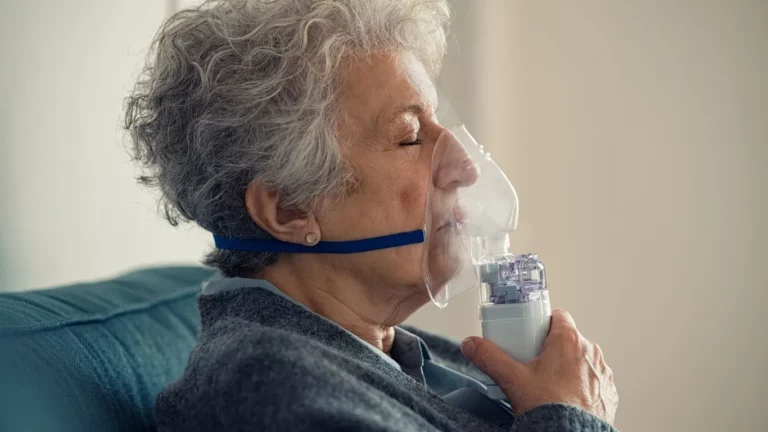Can Rheumatoid Arthritis Lead to Heart Disease? Vital Facts You Need to Know
Can rheumatoid arthritis lead to heart disease? It’s a question I hear a lot in my practice, and honestly, it’s a super important one. When patients first come to see me, they’re usually focused on their joint pain, swelling, and fatigue — understandably so. But very few realize that rheumatoid arthritis (RA) is more than just a joint issue. Over the years working as a Rheumatology nurse practitioner, I’ve had so many conversations that start with joint concerns and end with heart health. Yep, the connection is real — and if you or someone you love is dealing with RA, understanding this link could literally be life-saving.
Understanding the Hidden Impact of RA on the Heart

RA is an autoimmune disease that causes your immune system to go a bit haywire, attacking your own joints. But here’s the kicker — that chronic inflammation doesn’t stay neatly tucked away in your knees, wrists, or fingers. Nope. It spreads system-wide. And the heart? It’s one of the main organs that takes a hit.
Now, this doesn’t mean every person with RA is doomed to develop heart disease, but research — and trust me, there’s a ton — shows a significantly higher risk. In fact, people with RA have about 50% higher risk of cardiovascular disease than those without it. That’s not a little bump — that’s a serious concern.
So, What’s Actually Happening?
It all comes down to inflammation. RA’s inflammatory nature can damage the arteries over time, leading to something called atherosclerosis — that’s the stiffening or thickening of the arteries. This makes it harder for blood to flow, and increases the risk of heart attacks and strokes. It’s like your immune system goes rogue and starts messing with your cardiovascular plumbing.
- Chronic inflammation increases plaque buildup in the arteries.
- RA medications, especially steroids, can affect blood pressure and cholesterol levels.
- Physical inactivity due to joint pain can contribute to poor heart health.
Why This Matters More Than You Think

One of the things I always tell my patients is this: “We’re not just treating your joints — we’re protecting your whole body.” That’s part of the reason early diagnosis and aggressive treatment is so important. The sooner we can get RA under control, the better shot we have at protecting your heart.
I’ve had patients in their 30s and 40s — way too young to be dealing with heart issues — come in with no idea that their fatigue and chest tightness could be RA-related. It’s not always obvious. But when we dig into their labs, inflammatory markers, and even imaging, it becomes clear the disease is playing a much bigger game behind the scenes.
Symptoms You Shouldn’t Ignore
Here’s a quick list of signs that might suggest your RA is starting to affect your cardiovascular system. I don’t say this to scare you, but to empower you:
- Persistent chest discomfort (even mild)
- Shortness of breath, especially when walking or climbing stairs
- Unusual fatigue that feels different from RA tiredness
- Irregular heartbeat or fluttering sensation
If anything on that list sounds familiar, please don’t brush it off. As I always remind my patients, your heart matters just as much as your joints.
Risk Factors: When RA and Heart Disease Join Forces

One of the toughest challenges is when RA overlaps with other heart risk factors — and honestly, this is more common than most people realize. Here’s where things get layered:
- Smoking: It increases RA severity and heart risk.
- High blood pressure: Already puts strain on arteries — add inflammation and it’s a recipe for trouble.
- High cholesterol: Inflammatory cytokines can mess with lipid metabolism.
- Diabetes: The double whammy of insulin resistance and inflammation is no joke.
In my clinic, I make it a point to screen patients regularly for these overlapping issues. RA care isn’t just about suppressing flares — it’s about looking at the whole picture. That’s what true, long-term health looks like.
How RA Medications Play a Role in Cardiovascular Risk

Alright, let’s talk meds — because I know this is a hot topic for just about every RA patient I see. I’ve had people sit across from me, eyes wide, saying, “Wait, my medication can affect my heart?” And the answer is, well, kind of — but it’s not black and white.
Some of the medications we use to treat RA, like glucocorticoids (hello, prednisone), can increase blood pressure, blood sugar, and even cholesterol levels if used long-term. That combo can bump up heart disease risk. I’ve had patients who were feeling better joint-wise but had rising blood pressure that needed to be managed as a side effect.
But here’s the twist: controlling RA inflammation actually helps protect the heart. So while certain drugs may carry some cardiovascular baggage, letting RA run wild is often riskier. It’s about striking a careful balance — something I work on every single day with my patients.
DMARDs and Biologics: The Heart’s Unexpected Allies
This might surprise you — some disease-modifying drugs (DMARDs) and biologics may actually reduce cardiovascular risk. Meds like methotrexate and TNF inhibitors can tamp down inflammation to the point where arterial damage slows down, or even halts. That’s huge.
In clinic, I’ve seen patients who stayed consistent with their DMARDs not only feel better but also show improvement in cholesterol levels and inflammatory markers like CRP. It’s like their whole body starts to chill out — including their heart.
Lifestyle Tweaks That Make a Massive Difference

Okay, let’s step outside the pill bottle for a second. Medications matter, absolutely. But what you do in between those doses? That’s where a lot of the magic (or damage) happens. I’ve had the privilege of watching people take back control of their health with small, realistic changes.
Here’s what’s worked for a lot of my patients:
- Moving daily — even just a 20-minute walk can keep the joints flexible and the heart pumping.
- Anti-inflammatory diet — think leafy greens, fatty fish, berries, and less processed junk. The Mediterranean diet is golden here.
- Stress management — not always easy, but yoga, deep breathing, or even just a good laugh with a friend goes a long way. Stress drives inflammation.
- Quit smoking — can’t say this enough. Smoking’s like adding gasoline to the inflammation fire. Need help? Please ask — we’ve got tools.
One of my favorite patient success stories? A woman in her 50s who started biking with her husband every weekend. Her joints stopped flaring as often, and her cardiologist was thrilled with her cholesterol numbers. All from pedaling a few miles and changing her lunch routine. Little things stack up.
Monitoring and Screening: Don’t Skip It

If you have RA, regular cardiovascular screening isn’t just a good idea — it’s a must. I always recommend that my patients get checked for:
- Blood pressure — at least annually, or more if it’s high.
- Lipid panel — especially if you’re on steroids or have other risk factors.
- HbA1c or fasting glucose — because inflammation can push you toward insulin resistance.
- CRP and ESR — your inflammation GPS. Not heart-specific, but elevated markers mean your body’s still on fire inside.
One thing I always tell my patients: don’t wait for symptoms. By the time chest pain or shortness of breath shows up, we’re way past prevention. Be proactive. Advocate for these labs. Bring them up at your appointments if your provider doesn’t — you have every right.
And yes, you may need a heart specialist too
Don’t be shy about asking for a referral to a cardiologist, especially if you’ve had RA for years or already have other risk factors. I’ve partnered with some amazing cardio folks who truly get autoimmune overlap. That team-based care is where the magic happens.
I’ve even sat in on joint appointments with cardiologists and rheumatologists to make sure nothing falls through the cracks — and let me tell you, the patients who get that level of care? They thrive. It’s about treating the whole person, not just the swollen joints or the lab numbers.
Living Well with RA and Protecting Your Heart

After working with hundreds of RA patients over the years, one thing’s crystal clear: managing rheumatoid arthritis isn’t just about reducing joint pain — it’s about embracing a lifestyle that protects your whole body, especially your heart. This is a marathon, not a sprint. And sometimes, it means making daily choices that can feel tough but pay off big time in the long run.
Here’s the thing I always remind my patients during those sometimes tough visits: you’re not alone in this. I’ve been there with them, walking through flare-ups, navigating medication side effects, and yes, discussing heart health risks. The connection between RA and heart disease can feel overwhelming, but with the right support and tools, you can live a vibrant, heart-healthy life.
Practical Tips to Keep Both Joints and Heart Happy
In my experience, the best approach is a blend of medical care and lifestyle strategies. Here’s what I usually recommend:
- Stay consistent with your RA treatment plan. Don’t skip meds or appointments — controlling inflammation is key to protecting your heart.
- Keep moving, but listen to your body. Low-impact exercises like swimming, walking, or yoga can ease joint stiffness and boost cardiovascular fitness.
- Eat smart. Focus on foods rich in omega-3s, antioxidants, and fiber — all great for fighting inflammation and supporting heart health.
- Manage stress intentionally. Whether it’s meditation, journaling, or just carving out downtime, reducing stress can help lower inflammation levels.
- Stay on top of your screenings and labs. Regular check-ups with your healthcare team can catch early signs of heart issues before they become serious.
One story that sticks with me is of a patient named Sarah, who battled severe RA for years. When she started paying attention to her heart risk factors—quitting smoking, embracing exercise, and working closely with both her rheumatologist and cardiologist—her quality of life improved drastically. Not just physically, but mentally too. That’s the power of a holistic approach.
Common Questions I Get About RA and Heart Disease

Can controlling RA really reduce heart disease risk?
Absolutely. Persistent inflammation is a major driver of heart disease in RA patients. Keeping inflammation in check with appropriate treatments can significantly lower your risk.
Are all RA medications safe for the heart?
Most are, but some can have side effects that impact blood pressure or cholesterol. It’s important to discuss any concerns with your healthcare team so they can tailor your treatment and monitor you closely.
Should I see a cardiologist even if I don’t have heart symptoms?
Yes, especially if you have long-standing RA or other risk factors like high blood pressure or smoking. Early screening can catch problems before symptoms appear, which is always preferable.
What lifestyle changes are most important?
Smoking cessation tops the list. Beyond that, regular physical activity, a balanced diet, stress reduction, and maintaining a healthy weight all help both your joints and your heart.
Final Thoughts and Resources
Living with rheumatoid arthritis means being aware of more than just joint pain. The link between RA and heart disease is real, and understanding it empowers you to take steps that protect your whole body. As someone who’s spent years in the trenches with patients, I can say this: with the right care, support, and lifestyle habits, you can reduce your risk and lead a fulfilling, heart-healthy life.
For those looking to dive deeper, here are some trusted resources I often recommend for reliable, up-to-date information:
- American College of Rheumatology
- American Heart Association
- Centers for Disease Control and Prevention (CDC)
Disclaimer
This article is intended for educational purposes only and should not replace professional medical advice, diagnosis, or treatment. Always consult with your healthcare provider regarding any questions or concerns about your health, medications, or treatment plans.

Tarra Nugroho is a dedicated Nurse Practitioner with a strong foundation in family and preventive care. She brings both compassion and clinical expertise to her practice, focusing on patient-centered care and health education. As a contributor to Healthusias.com, Tarra translates medical knowledge into clear, empowering articles on topics like women’s health, chronic disease management, and lifestyle medicine. Her mission is simple: help people feel seen, heard, and informed—both in the clinic and through the content she creates. When she’s not caring for patients, Tarra enjoys weekend hikes, plant-based cooking, and curling up with a good health podcast.







